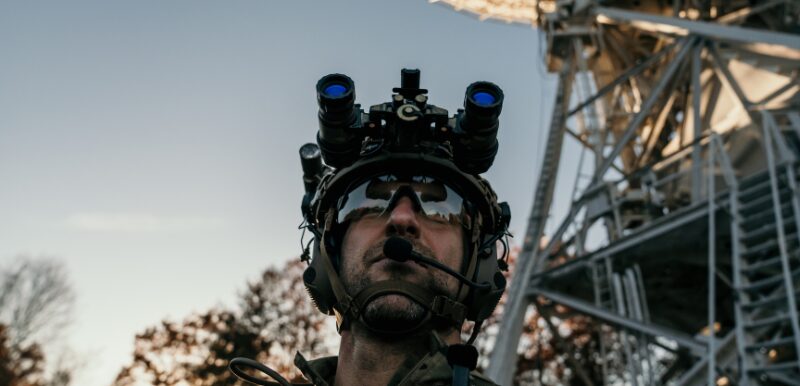Despite sharing similar names, there is quite a difference between analog and digital night vision. These differences provide certain advantages and disadvantages for users and help determine which night vision is right for you.
The Basics of Analog Night Vision
Back in 1935, analog night vision was an oversized German invention that needed a separate infrared light source to help amplify light in the dark. Also called traditional night vision devices, these require a photocathode and image intensifier tube to help brighten the desired image for the best visibility. As time has elapsed, the technology has evolved to where analog night vision binoculars don’t require a supplemental infrared light source.
There is no image lag with analog devices, making these traditional devices preferred by special forces, law enforcement, and persons who don’t want a motion delay. Modern analog night vision is leaps and bounds beyond the first inventions, but there are still significant differences in what digital devices offer.
The Basics of Digital Night Vision Devices
Although not a newcomer on the scene, advancements in technology have made the modern digital night vision device a high-performance camera. Rather than relying on image intensification through tubes, digital technology processes and converts an image into an electric signal. The signal is relayed to a micro-display that, in turn, sends a high-resolution image to the user.
Digital NV devices range from scopes, binocular systems, and a digital night vision monocular. These are typically preferred for sport hunting, surveillance, hunting, or nature-watching purposes, making digital night vision devices popular among private individuals.
The Similarities in Night Vision Devices
Both devices rely on ambient light to create the final image and allow users to operate in the dark. An image is enhanced to provide a brighter version of what the naked eye sees. These low-light performance devices are also similar in size and shape, making it easy for individuals to switch between devices as they see fit.
It’s important to remember that digital night vision devices aren’t the same as thermal devices. Thermal devices don’t use image intensifier tubes to produce the visual, as these rely on temperature variations to distinguish between objects. This allows a thermal scope to be used in total darkness, potentially qualifying as real night vision. Optimum quality with analog vision or digital night vision cameras requires some visible light.
With regard to performance, both devices have great practical uses for private citizens and military or law enforcement units. In fact, many people choose to have both for different situations, while others prefer to own both thermal optics and night vision.
The Differences in Analog vs. Digital NV Devices
In addition to operating differently from thermal imaging devices, there are differences between analog and digital scopes. These are a few of them.
Battery Life
Most night vision uses batteries, and battery longevity depends heavily on the features and usage. An analog system tends to provide longer battery life than its digital counterpart.
Performance and Adaptability
Most digital devices have a range of capabilities that make them valuable across a number of situations. Because digital night vision is the technology behind digital cameras, many people choose these products when they want to record or save an image. The digital display also has fewer blemishes and a clearer picture of the optical image compared to analog night vision.
There are options for both digital and analog helmet-mounted devices, but there is the potential to damage an analog device with too much exposure to bright light conditions. While the objective lens can take in a small amount of ambient light, the image tube can get ruined when there is continuous exposure to too much light. Digital options tend to last longer and can be used in daytime and night hunting situations.
Cost
Regarding your budget, you must decide what you are looking for from a night vision device. However, digital night vision often comes in much cheaper than high-end analog options.
The Place to Purchase Night Vision Devices
Whether you choose to go with an analog device or a digital one, Steele Industries carries a large selection of the best night vision equipment and accessories on the market. Order your ready-to-ship item today.


